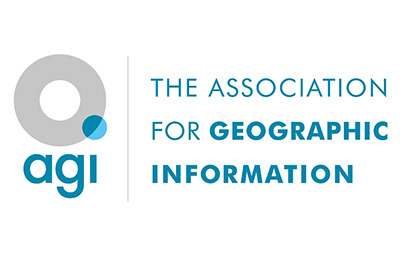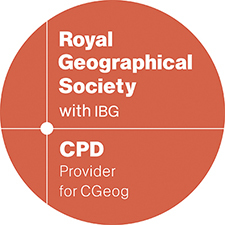What you can expect from the course
A step by step introduction to the creation and maintenance of street data according to best practice and data entry guidelines. The course is delivered by one of our expert team who collectively have over 50 years' experience in creating and maintaining address and street data. We don't outsource our training which means you will be trained by experts who have been involved in writing the specifications for the data as well as bringing years of practical experience of data management.
The course will cover 5 core areas:
Session 1 - Creating a Street dataset and LSG Geometry (LG)
This session covers the creating and updating the core information about a street, including the BS7666 Street Details, Highway Dedication, Directions & Exemptions, and how to draw ESU geometry. This session lasts approx. 1.5 hours.
Session 2 - Additional Street Data (AD)
This session takes the core elements of the LG and looks at how adding Additional Street Data (ASD) brings value. This includes Interest, Construction, Special Designations, Height Weight and Width Restrictions. This session lasts approximately 1.5 hours.
Session 3 - Submissions, Health Checks, Improvement Schedules and Street Services
This session will cover the submission/upload process, how to fix validation errors, health check reports, the improvement schedule and more of the services available to you from our website. This session lasts approx. 1.5 hours
Session 4 - History of the NSG, Documents and Legislations
This session looks at the history of the NSG, the different documents available to help you, and the different legislation around the NSG. This session is approx. 2 hours.
Session 5 - OSMM Highways Product, Public Rights of Way and List of Streets & Business Integration
The last session explores how the NSG is used beyond Street and Road Works, Public Rights of Way (PRoW), the List of Streets, and examples of how gazetteers are integrated into authority services . This session is approx. 1.5 hours.
Throughout the course
there will be reference to best practice case studies and signposting to
various other resources.
What you will get out of it
100% of delegates say they would recommend this course to a colleague.
The course is designed to explain simply and concisely the complexities around creating and maintaining your data. Understanding how your data is used not just within your authority but by organisations nationally.
The course is intense and we guarantee you will be tired, but fired-up by the end of the day!
You
really will get as much out of the day as you put in. We suggest you
think a little before you attend what you want to discuss or find out
more about.
You will come away with a sound basic understanding of how to represent real world objects in the appropriate data format. You will have a good awareness of the best practice associated with the creation and use of the data and a sound understanding of how to submit your data to the hub.
Who should attend
The Fundamentals Course is designed mainly for Custodians or Deputy Custodians who have been in the role for less than a year. Please note, this is not a street naming and numbering course.
Some Custodians who have been in the role longer or who feel they would like to brush up on their skills may also benefit from the course.
If you are in doubt, please contact us using the details below and we can advise you.
Dates
Please note this course is made up of 5 sessions & all 5 sessions will need to be attended in order to complete the course
March Course
| Session 1 Creating a Street dataset and LSG Geometry | March 10th 2025 | 10AM to 12PM |
| Session 2 Additional Street Data | March 11th 2025 | 10AM to 12PM |
| Session 3 Submissions, Health Checks, Improvement Schedules and Street Services | March 12th 2025 | 10AM to 12PM |
| Session 4 History of the NSG, Documents and Legislations | March 13th 2025 | 10AM to 12PM |
| Session 5 OSMM Highways Product, Public Rights of Way and List of Streets & Business Integration | March 14th 2025 | 10AM to 12PM |
June Course
| Session 1 Creating a Street dataset and LSG Geometry | June 30th 2025 | 10AM to 12PM |
| Session 2 Additional Street Data | July 1st 2025 | 10AM to 12PM |
| Session 3 Submissions, Health Checks, Improvement Schedules and Street Services | July 2nd 2025 | 10AM to 12PM |
| Session 4 History of the NSG, Documents and Legislations | July 3rd 2025 | 10AM to 12PM |
| Session 5 OSMM Highways Product, Public Rights of Way and List of Streets & Business Integration | July 4th 2025 | 10AM to 12PM |
Please contact [email protected] to book & for more information
Prices
Course |
Price |
Standard course (online) |
£150 per person (plus VAT |
Pricing has been set at a cost recovery level. Please refer to the terms and conditions page for details of our cancellation policy.
How to book:
Please contact [email protected] to book
Terms and conditions
Please read our terms and conditions.
Accredited for CPD
'Continuing Professional Development (CPD) is the systematic maintenance, improvement and broadening of knowledge and skill, and the development of personal qualities necessary for the execution of professional and technical duties throughout one's working life'.

The Association for Geographic Information (AGI) has accredited this courses with four CPD points. For more information on the AGI CPD scheme, please see the AGI website: www.agi.org.uk

The Royal Geographical Society has accredited the introductory courses with five CPD points.
CPD is an important part of the application and assessment process for
Chartered Geographer, and is a requirement for all those awarded
chartered status. For more information, please see the RGS website on Chartered Geographer accreditation.

